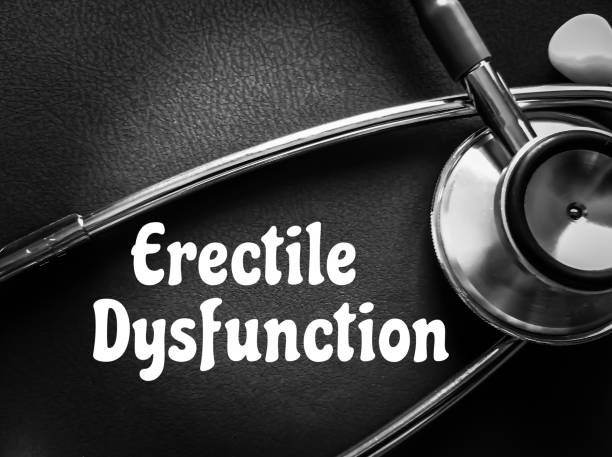Erectile dysfunction (ED) is not just a physical concern—it can take a toll on emotions, self-confidence, and intimate relationships. Many men struggle with feelings of frustration, embarrassment, or even anxiety when dealing with ED. As a supportive partner, your understanding and encouragement can play a crucial role in helping them cope. By approaching the situation with empathy, patience, and open communication, you can work through this challenge together and even strengthen your bond.
Here’s how you can provide the support your partner needs while maintaining a healthy and fulfilling relationship.
Understanding Erectile Dysfunction
Erectile dysfunction (ED) is when a man has trouble getting or keeping an erection firm enough for sex. It’s a common issue that affects millions of men worldwide and can have many causes, including:
- Physical factors – Conditions like heart disease, diabetes, obesity, and high blood pressure can impact blood flow and lead to ED.
- Psychological factors – Stress, anxiety, depression, and relationship problems can all play a role in erectile difficulties.
- Lifestyle choices – Habits such as smoking, drinking too much alcohol, and not getting enough exercise can increase the risk of ED.
- Medications – Certain prescription drugs, including those for high blood pressure or depression, may have ED as a side effect.
2The good news is that ED is often treatable. Understanding the underlying cause is the first step toward finding the right solution and improving both physical and emotional well-being.p in supporting your partner.

How Common Is Erectile Dysfunction?
Erectile dysfunction (ED) is more common than many people realize. According to the National Institute of Diabetes and Digestive and Kidney Diseases (NIDDK), around 30 million men in the United States experience ED. Research shows that nearly 50% of men over 40 face some level of erectile difficulty, and the likelihood increases with age. However, ED is not just a normal part of getting older. Many men can improve their symptoms with the right treatment, lifestyle changes, or medical support. Understanding that ED is common and treatable can help reduce stigma and encourage men to seek help.
How to Talk to Your Partner About ED
Talking about ED can be uncomfortable, but open communication is key to overcoming it together. Here’s how to approach the conversation:
1. Choose the Right Time and Place
When discussing erectile dysfunction, timing and setting matter. Choose a private, comfortable space where you can talk openly without distractions. A relaxed environment, such as during a quiet evening at home, can make the conversation feel less stressful. Avoid bringing up the topic during intimate moments, as this may add pressure or embarrassment. Instead, approach the discussion with care and patience, ensuring your partner feels supported rather than confronted.
2. Use Supportive Language
The words you choose can make a big difference in how your partner feels. Instead of saying something that may sound like blame, such as, “Why can’t you perform?” try a more supportive approach like, “I care about you and want to help in any way I can. Let’s work through this together.” Using kind and understanding language reassures your partner that they are not alone. A compassionate tone fosters open communication and makes it easier to find solutions as a team.
3. Encourage Openness
Reassure your partner that they are not alone and that erectile dysfunction is a common issue many men face. Let them know that ED is nothing to be ashamed of and that you are there to support them. Encourage honest communication by creating a safe space where they feel comfortable sharing their thoughts and feelings without fear of judgment. Listening with empathy and patience can help ease their worries and strengthen your emotional connection.
4. Be an Active Listener
When your partner opens up about erectile dysfunction, give them your full attention. Avoid interrupting or rushing to offer solutions—sometimes, they just need to be heard. Show that you’re listening by making eye contact, nodding, and responding with understanding. Phrases like, “I hear you, and I’m here for you,” can provide comfort and reassurance. Letting them express their feelings without fear of criticism strengthens trust and reminds them that you’re in this together.

Ways to Emotionally Support Your Partner
1. Reassure Them That ED Doesn’t Define Their Worth
For many men, sexual performance can feel closely tied to their sense of masculinity and self-worth. If your partner is struggling with erectile dysfunction, it’s important to remind them that their value is not defined by their ability to perform sexually. Reassure them that you love and appreciate them for who they are as a person, not just for their physical abilities. Let them know that ED does not change how you see them and that their worth goes far beyond any one aspect of their life.
2. Focus on Intimacy Beyond Sex
Intimacy is about more than just sex—it’s about connecting with your partner on a deeper level. If erectile dysfunction is affecting your physical relationship, try exploring other ways to build intimacy and closeness, such as:
- Cuddling and kissing – Simple physical affection can help you feel connected and loved.
- Holding hands – A gentle touch can provide comfort and reassurance.
- Giving massages – Massages can relax both of you and create a sense of closeness.
- Talking about your desires and fantasies – Open conversations about your feelings and needs can help strengthen your emotional bond.
By focusing on these forms of intimacy, you can deepen your connection and create a more fulfilling relationship, regardless of sexual challenges.
3. Be Patient and Understanding
It’s important to remember that your partner may experience feelings of frustration, embarrassment, or even sadness due to erectile dysfunction. They might be struggling with their own emotions and self-esteem. During this time, it’s crucial to avoid blaming or placing any pressure on them. Instead, focus on offering reassurance and encouragement. Let them know that you understand this is a challenging experience and that you’re there to support them, no matter what. Patience and empathy will help create a safe space for your partner to open up and feel supported throughout the process.
4. Educate Yourself About ED
Taking the time to learn about erectile dysfunction (ED) can help you better understand what your partner is experiencing. ED can have many causes, including physical, emotional, and lifestyle factors. By educating yourself, you can offer more effective support and reduce any misconceptions. Trustworthy sources like the Mayo Clinic and Cleveland Clinic offer reliable and accurate information about both the causes of ED and the treatment options available. This knowledge can help you approach the situation with more empathy and a clearer understanding of how to help your partner.
Encouraging Your Partner to Seek Help
ED is often treatable, but many men hesitate to seek professional help. Here’s how to encourage them:
1. Suggest a Doctor’s Visit
A medical professional can determine the root cause of ED and suggest effective treatments. Offer to go with them for support.
2. Explore Treatment Options Together
There are many treatments available, including:
- Medications: Viagra, Cialis, and other prescription drugs
- Therapy: Counseling for anxiety, depression, or relationship issues
- Lifestyle Changes: Exercise, improved diet, and stress reduction techniques
- Medical Devices: Vacuum pumps or implants
Encouraging your partner to explore these options can help them feel more in control of their situation.
3. Reduce the Stigma Around Treatment
Some men may feel embarrassed about seeking treatment for ED. Let your partner know that getting help is a sign of strength, not weakness.
Healthy Lifestyle Changes to Improve ED
Simple lifestyle adjustments can have a significant impact on erectile function. Consider adopting these healthy habits together:
- Eat a balanced diet rich in fruits, vegetables, lean proteins, and whole grains
- Exercise regularly to improve blood circulation and reduce stress
- Limit alcohol and quit smoking to improve overall health
- Manage stress through meditation, yoga, or breathing exercises
- Get enough sleep to support hormone balance and overall well-being
The Role of Diet in Sexual Health
Some foods can naturally support erectile function. Consider incorporating:
- Leafy greens and beets: High in nitrates, which improve blood flow
- Dark chocolate: Contains flavonoids that support circulation
- Oily fish: Rich in omega-3 fatty acids, which boost heart health
- Nuts and seeds: Provide healthy fats and essential minerals

Strengthening Your Relationship Through This Challenge
ED can feel like a setback, but it can also be an opportunity to grow closer as a couple. Here’s how:
1. Keep the Lines of Communication Open
Regular check-ins about feelings and progress can help keep both partners on the same page.
2. Make Intimacy a Priority
Plan romantic date nights, explore new activities together, and focus on emotional connection.
3. Seek Support if Needed
If ED is straining your relationship, consider couples therapy. A professional can help you navigate these challenges and improve your bond.
4. Set Realistic Expectations
Improving erectile function takes time. Celebrate small progress and remain optimistic.
5. Avoid Pressuring Your Partner
Performance anxiety can make ED worse. Focus on enjoying time together rather than making intimacy feel like an obligation.
Final Thoughts
Supporting your partner through erectile dysfunction requires patience, empathy, and teamwork. By fostering open communication, exploring treatment options, and strengthening your emotional connection, you can overcome this challenge together.
Have you or your partner dealt with ED? Share your thoughts or experiences in the comments below—your insights could help others going through the same journey!

